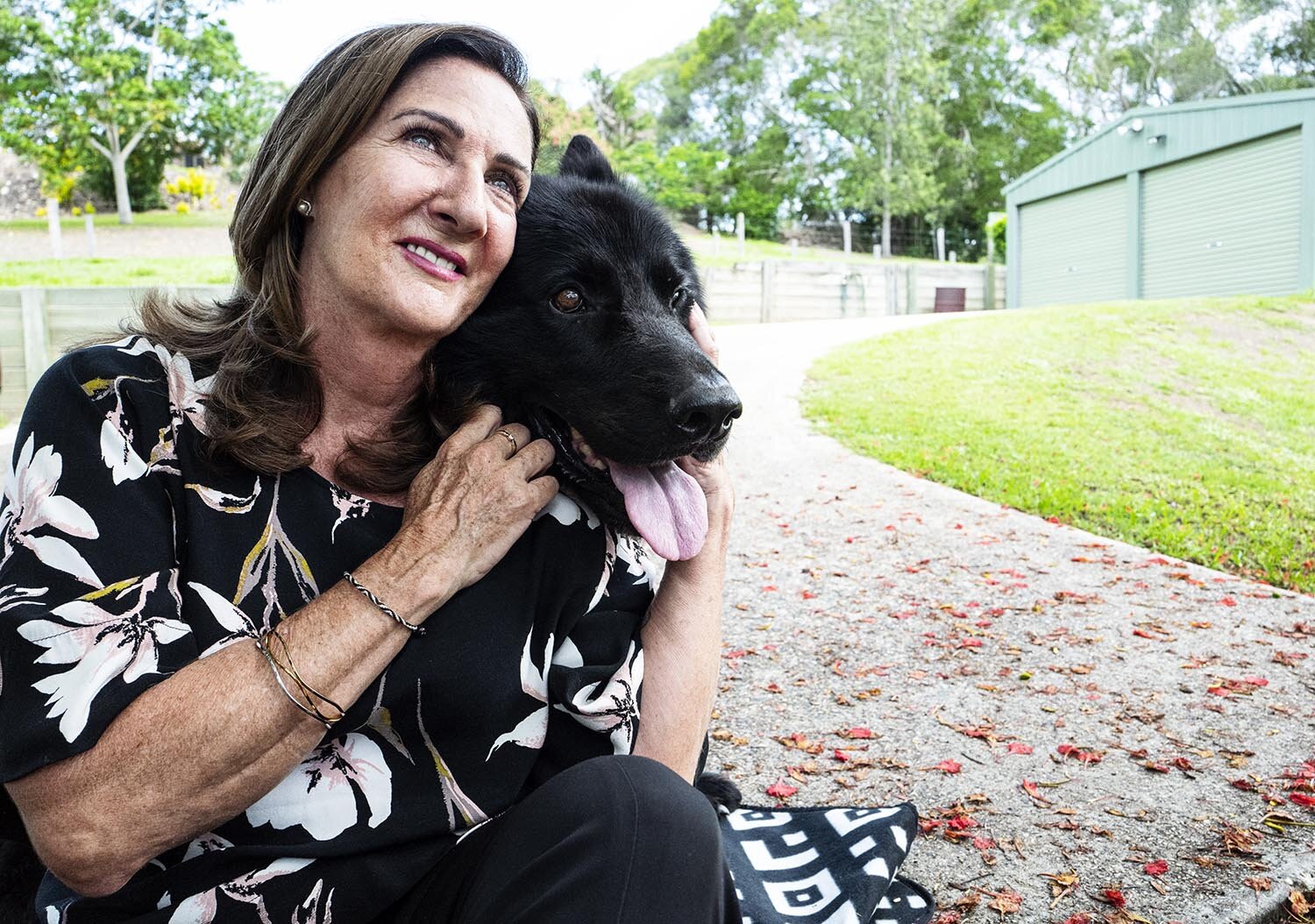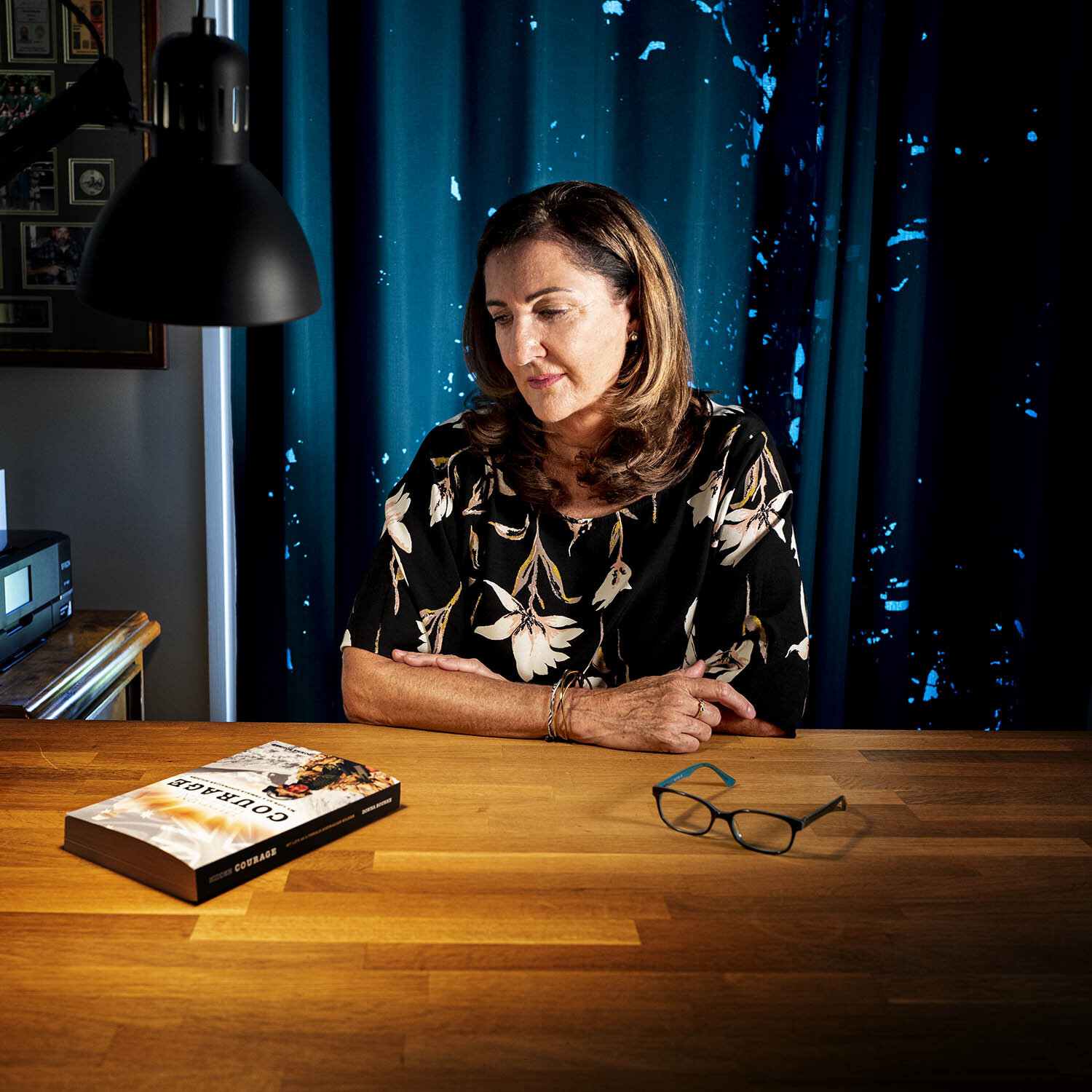Donna Bourke
Army, Author
Donna’s uncle, who was serving in the Australian army, challenged her at a family barbecue.
“Don’t you think it’s about time you got off your arse, started behaving yourself and stopped being a dole bludger?” he said.
It was 1979 and Donna was 20 years old and unemployed. She went to the army Recruiting Office just a few weeks after that barbeque and became excited at the idea of joining the military, because it sounded like something at which she could succeed.
She recalls, with a smile, how different the initial training was for women in comparison to men at the time.
“We were given make-up lessons. Our dress uniforms were slightly see-through, so we had to wear stockings and a petticoat underneath or face being charged. We were taught to be ladies, not to be fighters. It was a peacetime army after all.”
She also remembers, with wry humour, when her group of recruits had to admit that they had never been taught how to fire or handle a rifle.
“One day we were instructed to use our entrenching tools as a weapon by pointing them at each other, while loudly yelling, ‘Bang! Bang! Buckets of bullets, buckets of bullets!’ ”
Over the next few years, the army became Donna’s life and, within it, she thrived. It was no longer just a job. She found that she loved working in Signals corps and soon found that it was a solid career move.
However, when she married and welcomed two beautiful little girls into the world, her priorities shifted and Donna wanted to devote her time to her family. She made the decision to leave the army. Yet her love of military life never left her and she became a reservist.
She left the army in 1999. Then, the attack on the Twin Towers in New York on September 11, 2001 exploded onto the world. Donna found this event incomprehensible and felt a burning urge to do something. She made the decision to re-join the army and transferred to the Intelligence corps.
During her absence, she found that opportunities for women in the military had increased monumentally and she embraced every one of those opportunities, when able. Donna also found that there were many inspirational, brave and fearless women fighting for equal rights in what was still a ‘man’s world’. She was deployed six times over a nine-year period to areas such as East Timor, Afghanistan, and a short stint at sea on Border Protection operations.
A memory that will always remain with Donna is the Ramp Ceremony that she experienced, albeit all too frequently, in Afghanistan.
When an Australian soldier has been killed, they are never left alone while preparations are made for their repatriation back home. When ready, every available member of the camp then forms a Guard of Honour as the Australian flag-draped casket travels to the waiting aircraft. A soldier walks in front of the coffin carrying a photo of the deceased soldier. Once the coffin is settled inside the plane, the ramp is raised, and the plane takes off on its journey home. It slowly banks to the left and a red, white and blue flare is fired into the sky. Only then, do the soldiers on the ground release their salute.
Donna's many years of service, including her six deployments, culminated in severe injuries that saw her medically discharged from the army in 2016. A diagnosis of Post-traumatic stress disorder (PTSD), anxiety and depression, coupled with physical injuries, saw an immeasurable sense of loss envelop Donna.
As she looked for ways to regain control over her life, Donna attended an Australian Defence Force run arts program in Canberra. She discovered a non-judgmental environment that offered creative writing, drama, music and art. Having been a singer in her early life, Donna loved reconnecting with this passion.
“Singing brought back joy and confidence to my life,” says Donna.
Through the program, she began to heal and found a connection with the Australian National Veterans Arts Museum (ANVAM). This connection, and her support of ANVAM, remains strong to this day.
As Donna gained clarity and her mental health returned, she knew that she had a story to tell and began writing her highly successful novel, Hidden Courage: My Life as a Female Australian Soldier. Donna wanted it to serve as a legacy for her grandchildren so they would know that she wasn’t ‘just their Nanna’ and, instead, was a soldier who had been to war and, like many others, was injured.
Donna also wanted to demonstrate to future generations of women wanting to enlist into the military how she coped, asked for and accepted help and, with strength of mind, kept going.
She had a story that needed to be told.
@donnapriscilla59
@Hiddencourage





